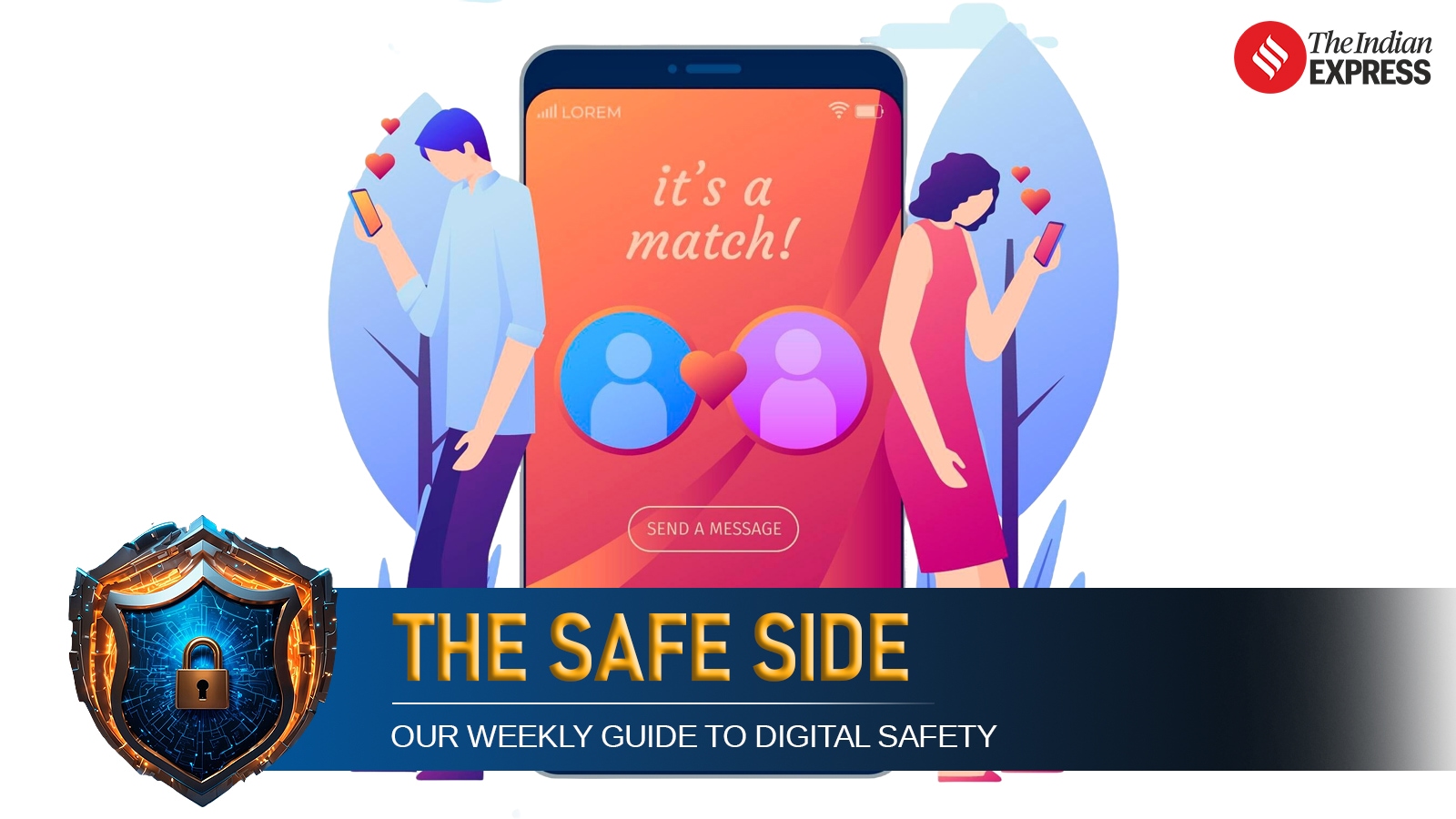Atul (name changed), 30, an IT professional, was growing weary of his mundane routine. Hoping for a change, he decided to try his luck on a popular dating app. His gamble seemed to pay off quickly; within ten minutes of signing up, he matched with someone. The woman he connected with mentioned her dislike for phone conversations, suggesting they meet in person instead. Without suspecting anything, Atul agreed.
The following day, she proposed meeting at The Godfather Club in Mumbai, a place she claimed her friends highly recommended for its ambience and food. Unfamiliar with the area, Atul didn’t object. At the club, she ordered with ease, giving the impression she was a regular. But what followed left Atul stunned—a bill amounting to Rs 55,000. The woman made no effort to contribute, and Atul, sensing something was wrong, reluctantly paid the bill with his credit card, eager to exit the situation.
Talking about the ordeal to indianexpress.com, Atul said, “What can you possibly do? There were so many bouncers, waiters and other men at the restaurant. How would you even refuse to pay or ask for a refund?”
His date vanished the next day, and Atul realised he had been scammed. He filed a complaint with the local police after discovering many men got scammed the same way. The experience left him emotionally scarred, unable to share the incident even with his family.
Sarang (name changed), an aspiring civil services candidate, faced an equally harrowing experience. Struggling with repeated failures in his UPSC attempts, he joined a dating app to ease his stress. There, he connected with a charming man who claimed to work in a government office. Their chats moved to WhatsApp and Instagram, where the man painted a picture of influence, saying his entire family held high-ranking government positions. Building trust, he professed his love and promised to help Sarang secure a coveted government job.
The man even introduced Sarang to his “brother” over a phone call to bolster his credibility. Soon, he began asking for money under various pretexts—fees for forms, admissions, and other formalities. Trusting him, Sarang transferred over one lakh rupees. A few days later, Sarang’s friend stumbled upon the same man on a woman’s Instagram profile, where she introduced him as her partner. The revelation shattered Sarang, leaving him betrayed, robbed of his money, and disillusioned about his dreams.
According to a McAfee study earlier this year, over 39 per cent of Indians surveyed reported that conversations with potential love interests online turned out to be scams. Scammers exploit the emotional vulnerability of their victims, weaving intricate webs of deceit for financial gain. This week on The Safe Side, indianexpress.com looks into the not-so-pleasant world of online dating.
Story continues below this ad
Cybersecurity expert Aakash Khadke, who indianexpress.com spoke with to get expert insights, explained that online dating platforms are a playground for scammers who manipulate human emotions and trust. These scams often involve creating fake personas, building emotional connections, and exploiting victims financially.
How scammers operate
Scammers use tools like Open Source Intelligence (OSINT) to gather information about potential victims from their social media profiles. By analysing likes, dislikes, and shared details, they tailor their approach, striking up conversations that feel personal and convincing. Khadke noted that younger people, middle-aged professionals, and members of the LGBTQIA+ community are particularly vulnerable, often targeted for emotional support they may lack elsewhere.
Types of online dating scams:
Khadke walked us through some common types of online dating scams:
Catfishing: Creating fake profiles to lure victims into relationships for ulterior motives. Advanced AI tools now make these personas more believable.
Story continues below this ad
Phishing: Sending fraudulent communications or personalised messages to extract sensitive information, money, or access to devices.
Spear phishing scam: Targeting individuals, groups or organisations by gathering information about them. These personalised scams trick victims into divulging sensitive data, downloading malware or sending money to an attacker.
Romance Scams: Striking up a relationship with the victim to build up trust, making up stories and seeking money. Khadke informed that romance scams are very old, and people were lured using this back when they used to chat over emails too.
Parcel Trick: Convincing victims to pay for a “stuck” parcel containing expensive gifts, only to vanish after the payment.
“In online dating scams, the scammers try to create a sense of urgency so that the victims don’t get enough time to connect the dots and think logically,” Khadke said.
Story continues below this ad
Spotting red flags
To protect yourself, watch out for these warning signs:
Requesting money: If the conversation progresses to the person requesting money, it is a major red flag. A person not close to you asking for money is a trap.
Avoiding meeting and video calls: In certain cases, scammers dodge the topic of meeting in person or avoid indulging in video calls that may give away their identity.If a person is doing this, it is most likely a scam in the making.
Sending money to extract later: In certain cases, scammers use reverse psychology. They send money to the victim first, showing their generous and caring side, only to ask for more money in return later.
Story continues below this ad
“Too good to be true” profiles: Sometimes, profiles you come across are too good to be true. Often, it is exactly that.
Taking things faster: In some cases, there would be a lot of eagerness right from the beginning and people will want to take things fast. Avoid such people.
Staying safe
– Compare the profile name with the URL while scanning through the social media profiles of the person you connected with. In case of fake profiles, these could be different.
– Often, in the case of fake Facebook profiles, there will be many friends but personal details would be absent.
Story continues below this ad
– To check if the photos used are genuine, run a reverse image search on Google and see if those pictures appear somewhere else.
– If the person you connected with asks to meet in person, be sure to pick a place of your choice, someplace you have been before.
– Do not over-share things about yourself on social media platforms; scammers are quick to catch small details.
What to do if you’re scammed?
If you fall victim to an online dating scam, act promptly.
Story continues below this ad
Report the Incident: Contact the cybercrime helpline (1930) or file a complaint at cybercrime.gov.in.
Dispute Credit Card Charges: If scammed at a venue, raise a dispute with your bank to halt the transaction.
Spread Awareness: Reporting incidents not only helps you but also prevents others from falling prey to similar scams. Attackers are emboldened when victims do not report the scams due to shame.
“Several online dating applications are adding verification badges to profiles, but people cannot depend on platforms for safety as it is only a medium to connect. These are just used for initial interactions,” Khadke said. He also stressed the need for widespread awareness campaigns and better societal understanding of these scams.
Click Here For The Original Source.

